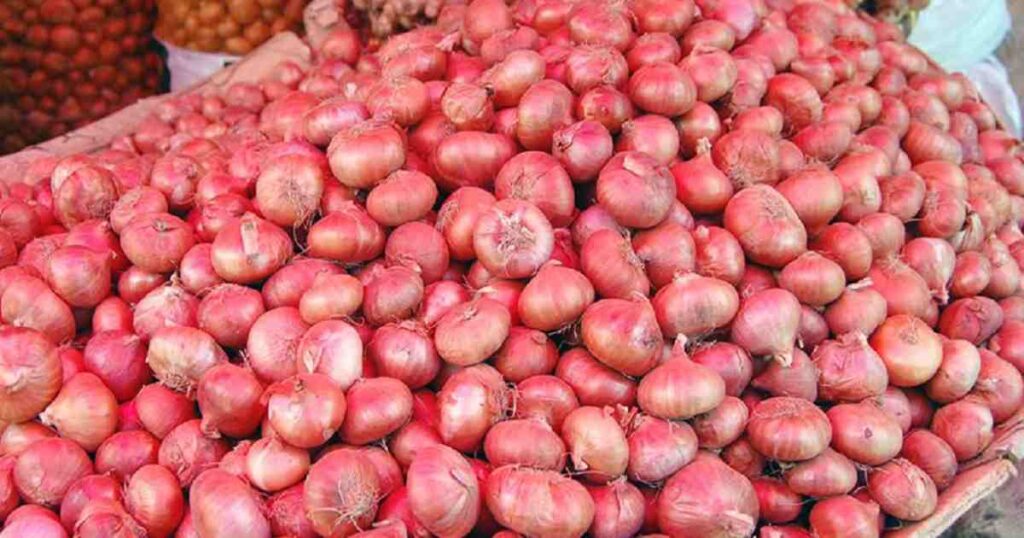The prices of onion are likely to increase in the country again as a fallout of its price hike in India.Local traders said the onion prices are set to go up as they have to purchase the bulb at higher rates.
Mobarak Hossain, an importer through Hili port, said one metric ton of Indian onion cost US$150-250 till Wednesday but now the Indian traders re-fixed the rate at $300-420 from Thursday.
As a result, onion is being sold at Tk 37-38 per kg in Bangladesh.Indian traders said supply crunch has forced them to raise the prices.
Sonu Majumdar, an Indian trader, said onion production suffered a setback in recent floods in India. “We’ve to wait for two months to recoup the losses. The price of onion in India is also high,” he said.
In an effort to keep the supply and price of onion normal in the country, state-owned Trading Corporation of Bangladesh (TCB) is expected to start selling it soon at a fair price.
A task force committee of the Commerce Ministry took the decision at a meeting, said a ministry handout issued on September 7.Bangladesh saw a record hike in onion prices after India banned its export on September 29 last year.
Onion, a popular item in Bangladeshi kitchens, witnessed a 557.8 percent year-on-year rise, TCB said. The record jump was made in only two months after the Indian export ban. Each kg of the bulb cost about Tk 30 before the ban.
According to TCB data, the price of local onion increased by 542.86 percent while that of imported one by 572.73 in November last year compared to the corresponding period of the last year.
A market analysis showed that the price hike, which stemmed from the ban India slapped on the export, is higher than the TCB estimation.
According to the Commerce Ministry, the annual demand for onion in Bangladesh ranges between 2.2 and 2.5 million tonnes. Although the country’s own annual production has risen, so has the amount imported over the last decade.
Commerce Ministry figures show the amount imported was hardly 0.4 million tons in FY09, but had touched up to 1.1 million tons in recent years.
source: UNB




